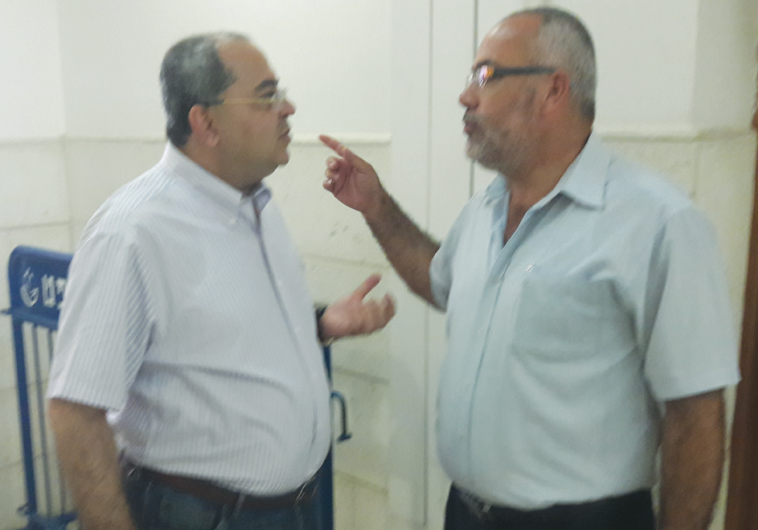Tibi accuses border policeman’s attorney of badgering bereaved father
Alleged Beitunya shooter’s lawyer says state tampered with witnesses.
 MK AHMAD TIBI (left) speaks with MK Osama Sa’adi at Ben Deri’s trial yesterday(photo credit: YONAH JEREMY BOB)
MK AHMAD TIBI (left) speaks with MK Osama Sa’adi at Ben Deri’s trial yesterday(photo credit: YONAH JEREMY BOB)